Always Inside, Always Enfolded into the Metainterface: A Roundtable Discussion
Scott Rettberg, Christian Ulrik Andersen, Søren Bro Pold, Lisa Swanstrom, Elisabeth Nesheim
At the moment when post-fictional fictions, essayistic fictions, and design fictions emerge as a cultural dominant, Rettberg, Swanstrom, Nesheim, Anderson and Pold discuss an emerging "aesthetics of infrastructure." Quietly condoned, mostly unnoticed installations of "Camouflaged Cell Concealment Sites" are now being visited by artists such as Betty Beaumont and Trevor Paglen. When our cloudy digital industries are so busily constructing cell phone towers that look like pine trees or Saguaro cactuses (sort of), the role of literary and visual artists may be simply to document these found fictions - for as long as they don't get arrested.
This conversation is published as the second in a series of texts centered around the publication of The Metainterface by Søren Pold and Christian Ulrik Andersen. Other essays in the series include: The Metainterface of the Clouds, Voices from Troubled Shores: Toxi•City: a Climate Change Narrative and Room for So Much World: A Conversation with Shelley Jackson.
Literary Readers in Cognitive Assemblages
Dani Spinosa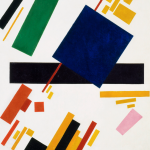
Dani Spinosa, who edited and introduced the Dubai gathering, endorses Hayles' position on the collaborative, cognitive, and (not least) communal potential of human-computer co-authorship.
Including E-Literature in Mainstream Cultural Critique: The Case of Graphic Art by Khaled Al Jabri
Doris Hambuch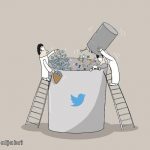
In this essay, Doris Hambuch uses the image-based work of Arabic cartoonist Khaled Al Jabri to address concerns of technological dependence to reconsider our use of screens. Rather than simply reprimanding readers about the potentially negative dependence of our contemporary society on technology and its screens, Hambuch instead proposes that we look to Al Jabri's work as a way of reconsidering the role of the screen in visual poetics and graphic literature.
Electronic Literature in Ireland
James O’Sullivan
O'Sullivan's essay appears at about the same time as a post to the Electronic Literature Organization list, revealing details of the Summer 2019 ELO Conference & Media Arts Festival, to be hosted by O'Sullivan at University College Cork, Ireland: http://elo2019.ucc.ie/
Voices from Troubled Shores: Toxi•City: a Climate Change Narrative
Scott Rettberg, Roderick Coover
This discussion is adapted from a presentation by Roderick Coover and Scott Rettberg of Toxi•City and other CRchange projects at the Arts Santa Mònica museum in Barcelona on March 3, 2016.Toxi•City was exhibited there as part of the “Paraules Pixelades” exhibition.
This conversation is published as the third in a series of texts centered around the publication of The Metainterface by Søren Pold and Christian Ulrik Andersen. Other essays in the series include: The Metainterface of the Clouds, Always Inside, Always Enfolded into The Metainterface: A Roundtable Discussion. and Room for So Much World: A Conversation with Shelley Jackson.
Parasite of a Parasite
David (Jhave) Johnston, Sean Braune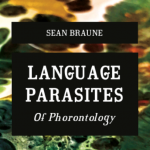
For a journal like ebr, long devoted to peer-to-peer reviews (of writers for and by writers), the engagement by Jhave with Sean Braune's Language Parasites suggests a variation on that model. Their parasite-to-parasite encounter bodes well to supplement (if not overtake) the hidden, professionalized peer review models that keeps all of us so busy and so hidden from view - of one another, not to mention our potential audiences. What better outcome for born digital scholarship than the replacement of "double blind" peer review with a "phorontology" of ties that bind, "[extending] its embrace to all"?Sean Braune's publisher has offered ebr readers a free pdf of Language Parasites. Print versions can be ordered from Punctum Books
Riposte to Grammalepsy: An Introduction
Astrid Ensslin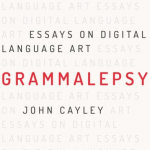
From an author celebrated for a career devoted to the digital, Cayley's book offers a cogent demonstration that "verbal language has been ideologically fettered to the medium of print for far too long." Ensslin, in her riposte, notes how Cayley's venture into a pre-digital format resonates with numerous recent works (in print and online; creative and critical), offering a "much-needed pathway out of institutionalized literary systems and practices.
The Metainterface of the Clouds
Christian Ulrik Andersen, Søren Bro Pold
The following assemblage, one of a series initiated with ebr version 7.0, is composed of four elements: a presentation (for release in October 2018) of Søren Bro Pold & Christian Ulrik Andersen’s The Metainterface including an excerpt from “The Cloud Interface: Experiences of a Metainterface World” chapter of the book (with permission from The MIT Press); a discussion (November 2018) by Scott Rettberg and Roderick Coover about the visual and narrative design of Toxi•City: a Climate Change Narrative, and a discussion of issues raised by The Metainterface (December 2018) that were taken up by the Bergen Electronic Literature Research Group during the EcoDH seminar, University of Bergen, June 14, 2018, and an interview with Shelley Jackson (January 2019) focused on her project Snow and her new novel, Riddance; or, The Sybil Joines Vocational School for Ghost Speakers & Hearing-Mouth Children. Contributors: Christian Ulrik Andersen, Roderick Coover, Shelley Jackson, Elisabeth Nesheim, Scott Rettberg, and Lisa Swanstrom.
This essay is published as the first in a series of texts centered around the publication of The Metainterface by Søren Pold and Christian Ulrik Andersen. Other essays in the series include: Always Inside, Always Enfolded into The Metainterface: A Roundtable Discussion., Voices from Troubled Shores: Toxi•City: a Climate Change Narrative and Room for So Much World: A Conversation with Shelley Jackson.
Tinkering with Media and Fiction
Daniela Côrtes Maduro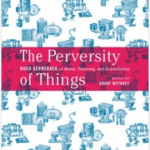
A timely revaluation of Hugo Gernsback, the Luxembourgish-American tinkerer who regarded science fiction not merely as a literary form or fantastic escape, but also, according to Grant Wythoff, as a way for readers to interact with and reflect on media and (not least) to know where tools can be found to gather knowledge on their own. More of a community of tinkerers than a literary movement or social media network, Gernsback's early and amateurish engagements with technology can help us to gauge what is lost in the transition to corporatist black boxery.
A Response to Strange Metapaper on Computing Natural Language
Mario Aquilina
Aquilna reflects on the reflections in Callus and da Silva's "Strange Metapaper."
A Strange Metapaper on Computing Natural Language
Ana Marques da Silva, Manuel Portela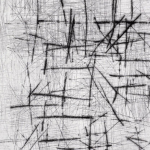
Without anonymous peer review, there can be no formal recognition of literary scholarship, and ebr is no exception. That said, our journal looks for occasions to turn our confidential reports into public riPOSTes, if the reviewer is so inclined. In this essay, our colleagues from Coimbra, Manuel Portela and Ana Marques da Silva, stage reflections on the peer reviews that their own scholarly work has generated, in earlier submissions to other peer review outlets. The "metapaper" that results, is a further step in the initiative not to do away with peer review, but to bring the process into the public sphere.
Grammalepsy: An Introduction
John Cayley
Cayley's book, Grammalepsy, is the first in the Bloomsbury series on Electronic Literature, due out this year (2018). A symptom of language whose therapeutic potentialities are passed over by commercial digitization, the term “Grammalepsy” suggests a lapse in designation. Cayley's book can remind us of the generative difference in any act of signification, in writing on a page no less than coding on silicon. There is no reason why the latter, so different from our neurological circuits, should be any better than any other conventional designation at encapsulating and communicating thought. The fact that literary theorists (and also digital makers like Cayley) place their work and thought self-consciously in the margins of what is now a digital consensus, suggests the presence of a long-standing (and continuing) literary counter-history to the Digital Humanities, that are too often characterized by datafication, single-entendre designation, and instrumentalist tendencies.
Minding the Electronic Literature Translation Gap
Nick Montfort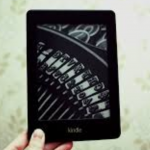
Agreeing that translation studies does well to address questions of transcoding, Nick Montfort further extends the project advocated by Maria Mencia, Soeren Pold, Manuel Portela (and our first respondent, Belgian Poet Laueate Jan Baetans). A look at explorations of the topic in early e-lit turns up longstanding interests in the translinguistic, transcreational, the metrical, material, and contextual. Montfort offers this itemization not just to enlarge a specific list and topology for translation studies, but to show that the concept of literary translation almost certainly needs to be exploded and reworked.
Literary Texts as Cognitive Assemblages: The Case of Electronic Literature
Katherine Hayles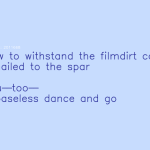
In a paper presented at the “Arabic Electronic Literature" conference in Dubai (February, 2018), N. Katherine Hayles considers born digital writing as a cognitive assemblage of technical devices and readerly, interpretive activity.
In Praise of the (Post) Digital
Anna Nacher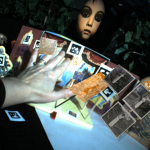
Indirectly responding to Callus's and Aquilina's essay, Anna Nacher finds a 14th way of describing e-literature: employing the Deleuzean concept of a minor
style.